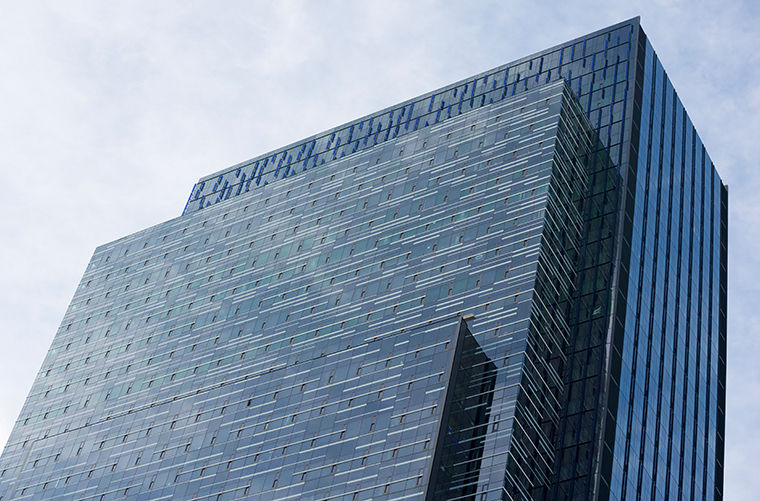Chicago bids for Amazon’s second headquarters
Amazon is in search of a second location to mirror its Seattle headquarters, captured here. If chosen, the development could bring 50,000 jobs to Chicago
September 18, 2017
Online shopping giant Amazon is searching for a city to host its second headquarters, and Chicago is a contender.
Jeff Bezos, Amazon’s CEO, announced the search Sept. 7 and said the new site could employ more than 50,000 people. The Seattle-based company is looking for a city with more than one million people, a stable and business-friendly environment, and the potential to attract strong technical talent, according to Amazon’s request for proposal.
Chicago could be a favorable location for the second headquarters because of its various universities, central location in the U.S. and acces to a strong transportation system, said Matthew Ragas, an associate professor in the College of Communications at DePaul University.
“[Amazon] wants to be in a place with an awesome cultural scene that has progressive values, and Chicago has really, really big pieces of land [for it],” Ragas said.
Another one of Amazon’s requirements is a location with more than 80,000 square feet, and Ragas said Chicago has undeveloped acreage that fits the criteria.
If Amazon chooses Chicago, it may locate in or around the Loop because of access to public transportation, said Michael Edwards, president and CEO of Chicago Loop Alliance, which attracts investment to the Loop.
“[Amazon] would have a significant impact on retail sales, property values, residential interest in living downtown, and [it would] certainly put more bodies in the trains that go in and around the Loop,” Edwards said.
Kyle Whitehead, government relations director at the Active Transportation Alliance said Chicago’s transportation system could meet Amazon’s needs.
“It speaks to the need for us to continue to invest in modernizing, upgrading and expanding the system to meet demands of the employers currently here and attract new ones like Amazon,” Whitehead said. “In recent, years we’ve seen a trend in Chicago and other cities of major employers relocating their headquarters to downtown and young professionals wanting to live car-free lifestyles and work in places where they can easily access their office.”
What may hinder Chicago’s chances is Illinois’ economic instability and the city’s high rates of gun violence, Ragas said, and while Mayor Rahm Emanuel has been successful at bringing corporate employers to Chicago, the city would likely need to offer Amazon economic incentives.
Amazon bought grocery chain Whole Foods in July, and Ragas said investors got nervous afterward because other large grocery store stock prices went down.
“We’ve long talked about the negative impact [Amazon has] on small mom-and-pop businesses,” Ragas said. “They’ve become so big and powerful big businesses shake in their boots and worry about being ‘Amazon-ed.’ They are arguably the most powerful force in retail today, maybe even more so than Walmart.”
Edwards said a second Amazon headquarters means the company will eventually be twice as big, which has the potential to hurt small businesses.
“That’s twice as much competition for mom-and-pop stores in Chicago, and every other city,” Edwards said. “That can make it difficult for [the city] to remain vital from a retail perspective.”








